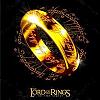I have mastered writting essays on general topics, but my problem area are literary essays! no matter how good I think they are my teachers still tell me otherwise!
It is a big problem for me since I have to write 2 essays for my matura exams, which will decide at which university I will study! The first essay will be in Slovene (language) in it has to be 700- 1000 words on Crime and Punishment and Visoska Kronika (a Slovenian book), the other will be an English essay about 250 words on The Great Gatsby or Look Back in Anger! My vocabulary is above average in both languages and so is my grammar, but there is always ''something missing''!
So I would like your opininions on what makes a good literary essay!
Thanks in advance!



 Reply With Quote
Reply With Quote

